Online Poker Vs Real Poker
Free Online Poker Vs Real-Money Poker Play Free online poker can be very tempting and it's easy to understand why so many people play it. When there's no money being wagered, people that enjoy poker. We could be forgiven for thinking that bet sizes should be around the same level. Internet Poker Strategy Playing in a casino and playing internet poker has a number of little differences that you should adjust to. It's a fact that people tend to act differently on the internet than they do in real life in areas outside of poker, so it makes sense that people act differently in internet poker vs real. Online poker is much more interactive, dealing with real players in real time. Fantasy sports on the other hand is played through preparation and simulations, so direct interaction with others is limited.
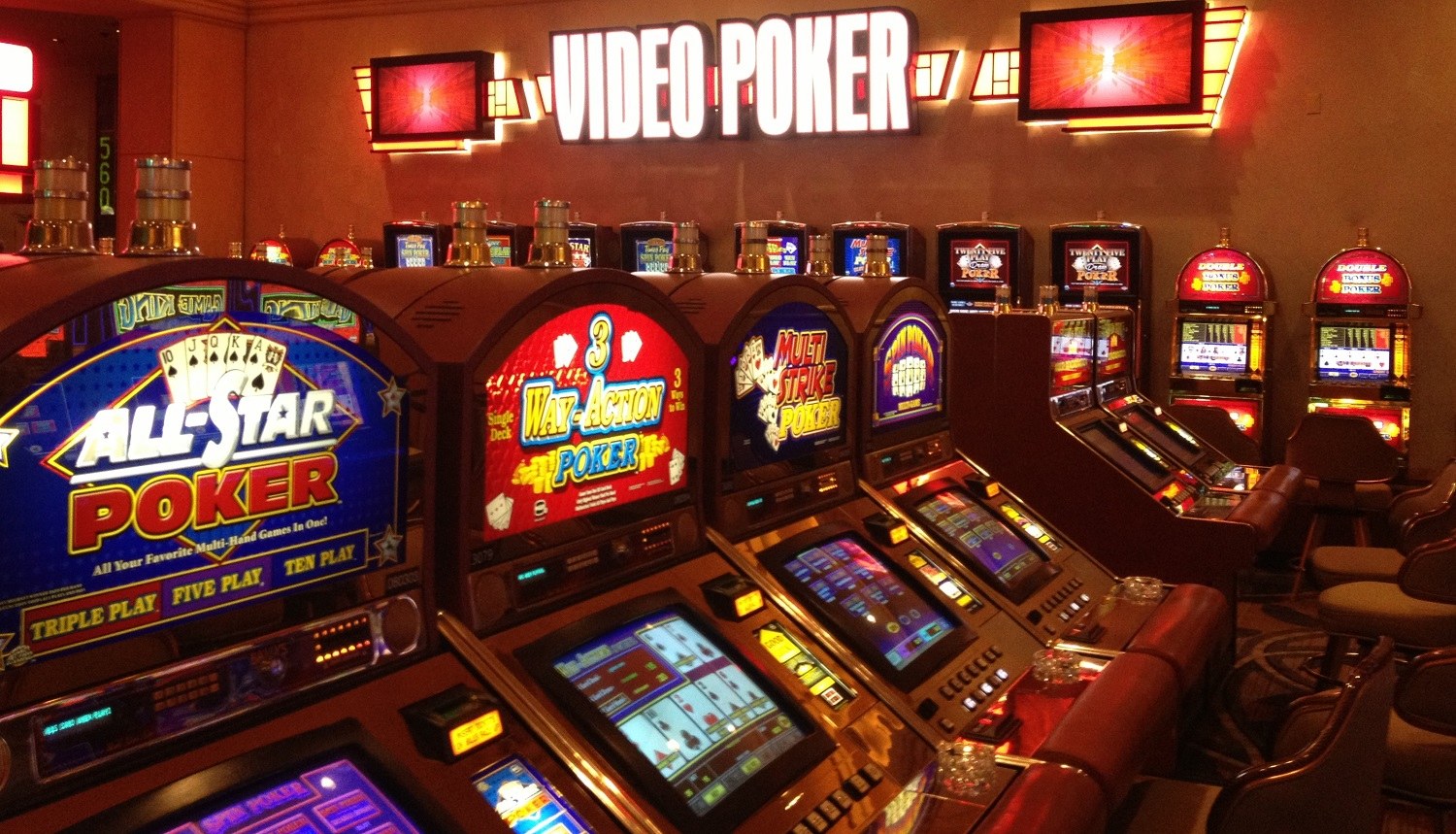
An excerpt from the book 'The Intelligent Guide to Texas Hold'em Poker' by Sam Braids
With the growth of online poker, much can be written comparing the experience of online poker to that of a real cardroom. If you have tried one venue and not the other, or must decide in which venue to begin, here are some general considerations.
Much lower limit games exist online than are found in a real cardroom. You can start your real-money poker career online much cheaper than in a real cardroom. It is possible to find $0.25–0.50 Hold’em games online, whereas stakes that low would never produce enough profit for the house in a real cardroom (the lowest limit games found in real cardrooms are usually $2–4).
Poker Online Game
Online play has much less overhead than a real cardroom. As a result, it is easier to be more selective about the games you choose to join. If you go to a real cardroom, you must incur the travel expenses. For many people, the travel is out-of-town with expenditures required for airline, taxis, dining, and overnight stay. Even if you live close to a real cardroom, it costs money to drive your car and park. At the tables, waitresses will provide drinks and snacks, for which they expect a tip. Dealers also expect a tip from each pot that you win. All of these expenses are in addition to the rake the casino takes for conducting the game. To profit from play in a real cardroom, all of these expenditures constitute overhead that must be paid from your winnings before a profit is realized.
Psychologically, overhead makes it difficult to be selective with the games in which you choose to compete. All poker books stress the need for choosing the right game, one that is within your betting limits and populated with enough poor players to be profitable. Much has been written on choosing the right seat at the right game. But suppose after spending substantial time and money getting to a cardroom, you can’t find an ideal seat at a good game. Naturally, you will play in the available seat in whatever game is underway.
Another feature of online play is the impossibility of violating conduct rules during play. You cannot act out of turn, place string bets, see other player’s cards, show your cards to others, or squirrel money away unseen in a table-stakes game. The software rigidly enforces the rules of the game and precisely displays all the game parameters. At all times, you know precisely the number of active players, how much money each has, and how much money is in the pot.
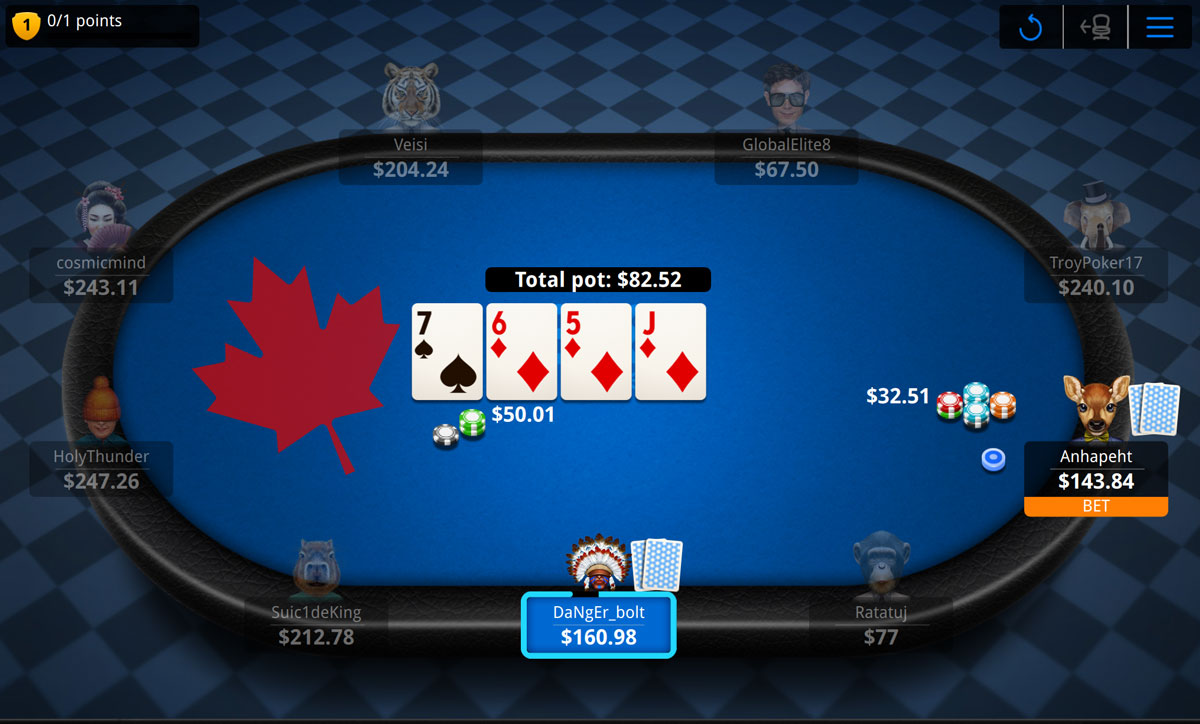
In the privacy of your home, you can have poker charts and tables open to aid in your decision-making, and make notes as you play. It is easy to know the exact pot odds (a concept that will be discussed in the next chapter) when you bet because the exact amount in the pot is displayed and you can tape a chart on odds from this book above your computer screen. The chart in Chapter 4— Minimum Pot Size for Correct Pot Odds—is especially useful for online play. When online, there is no one blowing smoke in your face, an uncomfortable distraction to many. If you do smoke, no one will complain or ask you to move.
In contrast, poker in a cardroom is a social event. Players talk, joke, and get angry with one another. If you get confused, people help you out. The waitress brings drinks and snacks. The dealers switch tables frequently and banter with the players. There is sensuality in a cardroom that fancy graphics and sound effects cannot create on a computer screen: the feel of the weight of real chips when you bet, the stiff shiny cards that you lift slightly off the table to view, the many kinds of people that play poker—all races, ages, professions, and economic backgrounds.
The social environment of a cardroom also means you can observe mannerisms and gestures that are clues to your opponents’ thoughts, which are called “tells.” Is someone who was staring off into space now paying close attention? Is someone so anxious to bet that their chips are in hand well before it is their turn? Is someone visibly disgusted with the river card? Obviously, none of this is observable online. However, that does not mean online play is completely free of “tells.” Online players have their own response rhythms that will vary with the decisions they make. Most poker room software allows the player to click an action button at any time before their turn, even though the action will not be executed until it is their turn. Pre-planned actions show up as instant responses, a possible “tell” that the player had an easy decision to make. Players may also use the instant response buttons as a bluff. Player personalities, as manifested by their betting patterns, are discernable in any environment. A player who bets aggressively is obvious both online and in-person.
My recommendation is that if you are learning poker, go online and check out the resources. Participate in play-money games as a way of learning the mechanics and structure of the game. However, the first time you play for real money, do so in-person, in a cardroom surrounded by people you can observe and talk to. Do not play online until you have developed a good poker sense and can know immediately if the game situation is not working for you. However, once you are comfortable with poker and know yourself and your limits, online poker allows you to play anytime from anywhere.
How would you compare live poker and online poker?
On the one hand, whether you play poker in a casino or play poker on a computer, it's still the same game. A flush beats a straight in both. Players in both games bet and bluff and deliver and receive bad beats. Many of the skills developed in one format translate readily to the other.
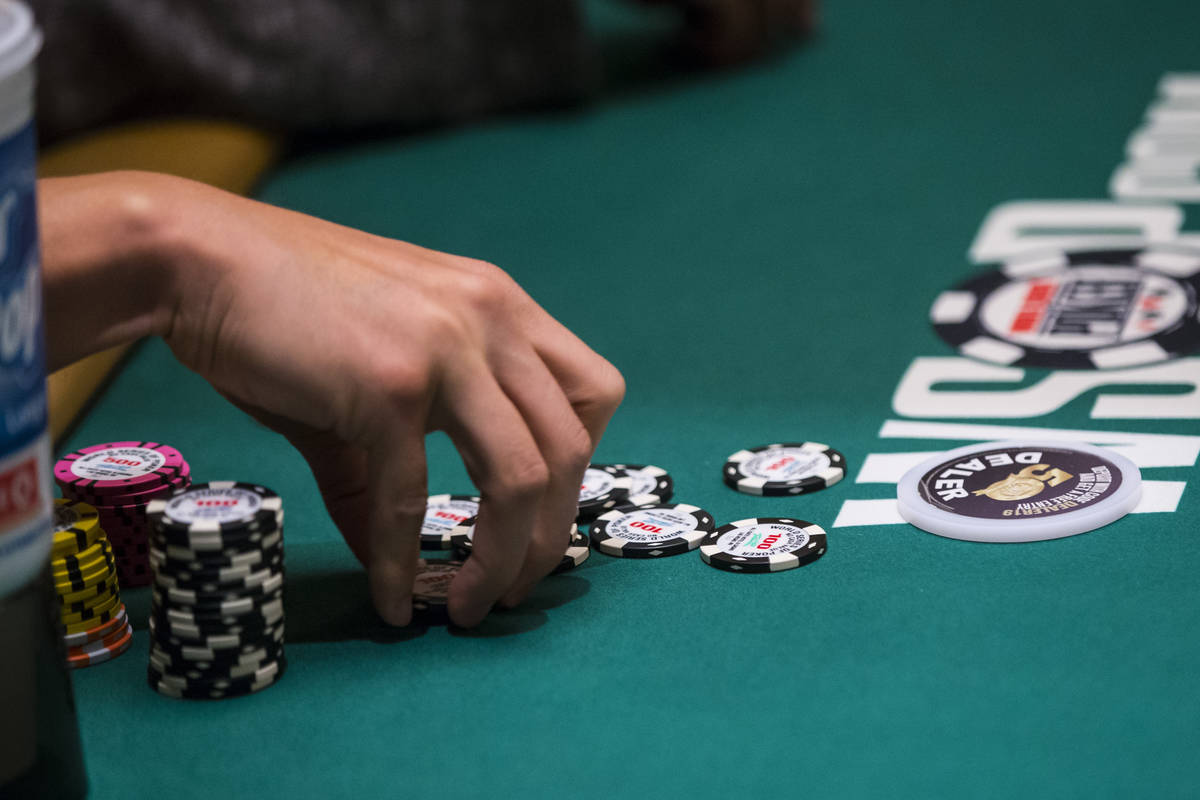
Then again, many players have persuasively argued the games couldn't be more different. It's like comparing chess and checkers, some have suggested. Online poker, a video game, live poker more likened to a sport. One's 'virtual,' the other 'real.'
There was a time in the not too distant past that the contrast between 'live poker players' and 'online poker players' was quite stark. Many pros belonged to one group and essentially ignored the other. You'd hear stories of 'live pros' venturing online and not faring well (with some complaining the game wasn't 'real' poker). Then there would be 'online pros' showing up at live events and struggling with handling cards and chips or game etiquette.
Today there is a lot more overlap, with most top players and many at all levels playing both online and live. Those who do engage in both have to be aware of the differences between how the respective games tend to play.
What are some of the differences between live and online poker? And among these differences, which are the most important ones for players making the jump from one to the other? As you think of an answer, here are several differences to consider.
Bet Sizing
In live cash games you'll often encounter different bet sizing than happens online, primarily when it comes to opening preflop raises. While an online cash game might feature players opening for 2x, 2.5x, or 3x the big blind, in live games it isn't unusual to encounter players opening for 5x or 6x or even more, particularly in the lower-stakes live games (e.g., $1/$2 NL).
Tournaments are a different story, although there, too, you'll occasionally find live players overbetting, particularly inexperienced ones who struggle with keeping track of pot sizes.
Multi-Way vs. Heads-Up Pots
That said, in the live games you'll often encounter looser play, generally speaking, in the form of players doing a lot more calling. One consequence of this trend is more multi-way pots occurring live than online where the preflop betting more typically creates heads-up situations.
It isn't that unusual in a live cash game session to witness a number of limpers preflop and/or several callers of a preflop raise, thereby creating a multi-way situation.
Calling vs. Folding
Meanwhile, if live players are often looser than online players with their preflop calls, postflop things tend to go differently. You'll find that online players are in fact more apt to make big postflop calls with weak- or medium-strength hands than tends to happen live. That means big river bluffs tend to get through more often live than happens online (although of course, everything depends on the player and situation).
One explanation for this tendency is the fact that it is easier for many players simply to click a 'Call' button than to make a tough call live. Not having to endure in person the embarrassment of guessing wrong with such calls make them easier online.
Frequency of Bad Beats
In part because of this tendency to run into more callers online, many players report experiencing 'bad beats' more often online than happens live. This is especially so at the 'micros' and lower limits online, where the small stakes further encourage calls with subpar hands that occasionally do outdraw better ones.
The sense that the bad beats are coming more often online is enhanced, of course, by another big difference between live and online poker, namely...
The Pace of the Game
One of the more obvious surface-level differences between live and online poker is the pace of play. Online poker plays considerably faster than live poker, and some who prefer playing online find the live game too tedious to tolerate. Whereas you might be dealt around 30 hands per hour in a no-limit hold'em cash game, online you'll see 60 hands per hour (or more) at a given table and even more in short-handed games. The ability to multi-table online also means playing a lot more hands per hour than is possible live.
For this reason, the impression of getting more bad beats online can be exaggerated. The fact is, you can seem to experience more of everything online because you're playing many more hands, which in turn affects...
Variance in Online Poker vs. Live Poker
'Variance' is a term often used generically to describe the 'swings' one endures in poker, with the higher 'variance' translating into bigger gains and losses in the short term when compared to your results over longer periods. The faster pace of play online again artificially affects what the 'short term' actually is. You might play a week online and log 10 times the number of hands you'd play if you played live poker for a week, thus giving the impression that your variance has been accelerated greatly.
Even if it is an artificially-created difference, this 'higher' variance when playing online can mean faster, more marked bankroll swings over shorter periods than generally happens live. That means bankroll management has to be approached differently when playing online, where you generally want to maintain a bigger bankroll (in terms of cash game buy-ins or tournament entry fees) than you need when playing live.
Online Tells vs. Live Poker Tells
Online Poker Vs Real Poker Games
An obvious difference when playing online is not being able to see your opponents — or for them to be able to see you — which means, of course, the role of 'physical tells' gets omitted from the online game. This also obviously affects table talk, which can be important in live games but becomes a non-factor when playing online (aside from chatbox 'talk'). Experienced live players maintain it is much easier to 'profile' opponents when playing live, especially less experienced ones who tend to give away lots of information very quickly at the table.
That doesn't mean there aren't any 'tells' in online poker. Check out '7 Ways to Get Better Reads When Playing Online Poker' by Nathan Williams for discussion of several examples.
Relative Stakes
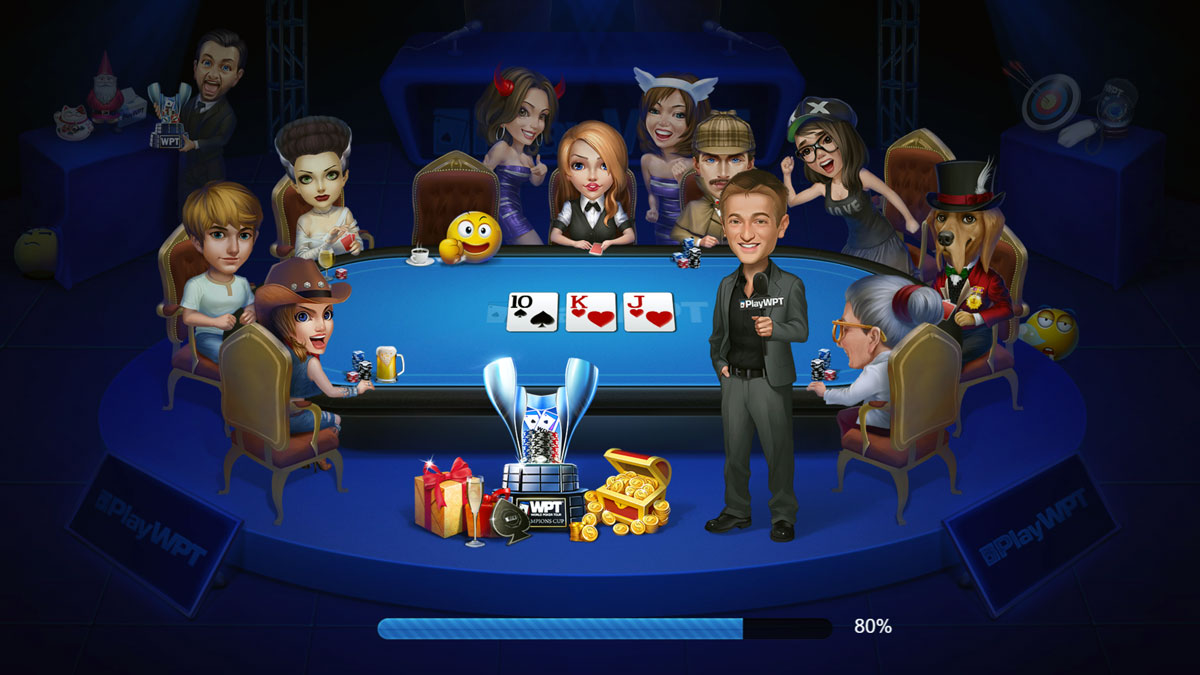
Holdem Poker Online
One last difference we can add to the list concerns how stakes compare between live and online poker. For various reasons, an online game played at the same limit as a live game will usually feature higher-skilled players, relatively speaking. For example, a live $1/$2 NL cash game generally won't have as many tough opponents around the table as you'll find in a typical $1/$2 NL online game, in part because while there usually aren't any lower-stakes games available live, there are plenty of them online (down to just pennies).
Some have suggested as a rule of thumb a '10-to-1' guideline when comparing live and online stakes — e.g., a $0.50/$1 NL game online would play as 'tough' as a $5/$10 NL game live. Of course, you'll still encounter both good and bad players at all levels, both live and online, so don't take this as a rule without exceptions.
Those are some of the most significant differences between live and online poker. Which would you consider to be the biggest difference out of all of these? Share your thoughts in a comment below.
Be sure to complete your PokerNews experience by checking out an overview of our mobile and tablet apps here. Stay on top of the poker world from your phone with our mobile iOS and Android app, or fire up our iPad app on your tablet. You can also update your own chip counts from poker tournaments around the world with MyStack on both Android and iOS.
What Is The Best Online Poker
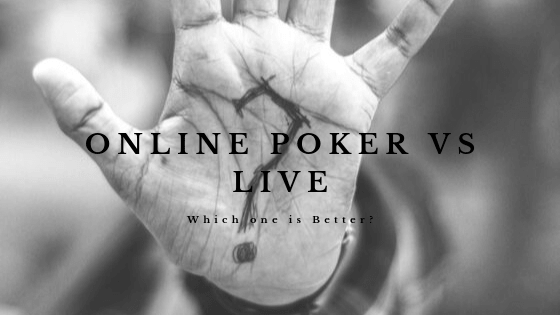
Tags
cash game strategytournament strategyonline pokerlive pokerbet sizingheads-up strategymulti-way potsaggressionbluffingpsychologyvariancetellsRelated Players
Variance